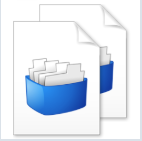
ASS File Type
By Trados AppStore Team
Free
Description
Filetype support for the ASS/SSA (Advanced SubStation Alpha) filetype used in subtitling. Can work alongside the Studio Subtitling plugin that is available on the RWS Appstore for enhanced context when translating/editing/proofing.
Technical details
5.1.0.0 - Trados Studio 2024 (SR1)
Changelog:
- updated to accommodate Studio 2024 SR1 changes
Checksum: fbb9c3d08cb50594fd83c93cd88d11064b314612935c79561b40e0c0d471b8da
Release date: 2025-05-30
5.0.0.2 - Trados Studio 2024
Changelog:
- updated to Studio 2024
- updated TellMe features
Checksum: 60e46afac931d6af073750c1449d90c8bb594c532041aed703a348f2efbcbc85
Release date: 2024-06-19
4.1.0.0 - Trados Studio 2022 (SR2)
Changelog:
- ASS filetype: Compatibility changes - Update Toolkit reference
Checksum: 564f3a6585223e7efd56a29fb0af26cb5d776448d269535f53d4c416d1ed3d74
Release date: 2023-11-24
4.0.0.0 - Trados Studio 2022 (SR1)
Changelog:
- ASS filetype: Compatibility changes - Update Toolkit reference
Checksum: 3cb14fbf81c987e5e6bc879d980b0117b50028012cc810220182d1db6c553f7a
Release date: 2023-11-24
3.0.1.1 - Trados Studio 2022
Changelog:
No related information.
Checksum: 9e541b13e2c7102dedfbfd0dd3d3f16ac4fcfcad4f06ba4b185a8d3dba550759
Release date: 2023-06-07
2.1.6.1 - Trados Studio 2021
Changelog:
No related information.
Checksum: d777debf289eb7fe4eff4fd4a562122a0648e48df6e2aadf16f3277c54414bd7
Release date: 2022-05-18
1.1.5.3 - SDL Trados Studio 2019 (SR2)
Changelog:
No related information.
Checksum: 2f25e6a2f544dddfdfc688bc830a8867b9504a4c648864901b1f97714c576fd1
Release date: 2020-07-20
Support website: https://community.rws.com/product-groups/trados-portfolio/rws-appstore/f/rws-appstore
Shared products:
Trados Studio 2024 (SR1)
5.1.0.0
- updated to accommodate Studio 2024 SR1 changes
Trados Studio 2024
5.0.0.2
- updated to Studio 2024
- updated TellMe features
Trados Studio 2022 (SR2)
4.1.0.0
- ASS filetype: Compatibility changes - Update Toolkit reference
Trados Studio 2022 (SR1)
4.0.0.0
- ASS filetype: Compatibility changes - Update Toolkit reference
3.1.1.1
No related information.
3.1.1.0
No related information.
Trados Studio 2022
3.0.1.1
No related information.
Trados Studio 2021
2.1.6.1
No related information.
SDL Trados Studio 2019 (SR2)
1.1.5.3
No related information.
Overview
ASS (Advanced SubStation Alpha) is a subtitle file format that is widely used for creating and displaying subtitles in videos. It is an advanced format that offers a range of features for precise subtitle placement and styling.
Getting Started
1.Minimum Requirements
- Trados Studio 2019 SR2
- Studio Subtitling
2.Installation
You can install ASS File Type either directly within Trados Studio via the Integrated AppStore or alternatively you can download and install from the RWS AppStore
3.Access
Once installed, the ASS File Type can be accessed in various ways:
- Trados Studio Tell Me Feature
- Default Path: Go to File -> Options -> File Types
- New Project: Create New Project -> File Type Identifier Settings
Tip: Update your selected project template with your new file type preference, after completing the project preparation tasks. Alternatively you can update Project Templates by going to File -> Setup -> Project Templates, select your project template to edit and then manage your list of supported file types.
- Existing Project Selected: Project Settings -> File Types
Tip: You can add new files to an existing project, as long as the project is recognised as a Studio project and not a Single file project. However file type need to be manged prior to adding new files (conversion from native to *sdlxliff)
Note: If you don’t see ASS File Type as a listed file type, you may need to click on "Additional installed File Types Exist" to enable it as a supported file type.

Working In Trados Studio
1.Recommendation
We recommend working with subtitling files through the Creating projects workflow as apose to Creating projects using Translate Single Document workflow. This is so you can take full advantage of all the benefits that comes with managing Studio projects where as Single file projects are restricted.
2.File Type Identifier
When adding your ASS file to a project, make sure the File Type Identifier lists ASS V 5.0.0.0. You can see the File Type Identifier either during the project creation process or in the Files View if your layout is set to "File details layout."
 3.Reference File
3.Reference File
When working at the Studio Project level instead of "Translate Single Document," you can include an MP4 file as a reference file. The advantages of this is documented as part of Studio Subtitling
4.Feature support
For more additional feature support and information on how to work with subtitling files in Trados Studio, you need to install Studio Subtitling as a companion and review it's documentation








